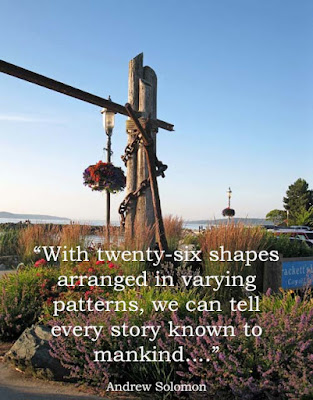Think
about an individual who made a significant impact on your life—someone who
changed you, whose life still ripples through yours today even if you live far
apart, or even if that person has died:
- A soldier
- Fireman
- Parent
- Grandparent
- Aunt or uncle or cousin
- Preacher
- Teacher
- Singer
- Supervisor
- Janitor
- Missionary
- Neighbor
- Doctor
- Store clerk
- Professor
- Farmer
- Policeman
- Classmate
- Teammate
- College roommate
What,
specifically, did she do that impacted your life?
What words did he say that made all the difference?
What
good example did she live which inspired you to live in the same way?
How
did his choices give you the courage to shape yours?
How
different could your life have turned out without that person’s involvement?
You’ll
want to include some of these people in your memoir.
Memoirist Kathy Pooler (who recently passed away) reminded us: “Hindsight seems to bring
about new clarity and wisdom,” so take time—make time—to seek clarity and
wisdom to discern how God brought people into your life and made
you who you are today.
You might not have recognized, back then,
the significance of that person’s mark on your life,
so dig deep into your memory.
Note
the ways God used them to protect you, give you hope, maybe redirect you, and
strengthen your faith.
Start
writing even before you have remembered everything,
even
before you know where your story is going,
or
how it will end.
Why?
Because
much more hides within your experience than you realize right now. Writing
leads to discovery. Roger Housden says it this way:
“[A]s
much as we think we know about our story, there is far more waiting to surprise
us when our own words hit the page.”
So,
write your stories!
Write
them not as a hobby,
but
as a ministry to your family and friends
—and even to strangers.
Your
kids and grandkids and great-grands—and all your readers—need to know about the
people who invested in you and guided you—and probably even kept you from doing
something stupid.
Just
think: Your stories could have a life-changing impact on your readers, passing
the original blessings on to future generations.
“There
are generations yet unborn
whose
very lives will be shifted and shaped
by
the moves you make and the actions you take today. . . .”
(Andy
Andrews, The Butterfly Effect)
Come
back next week: I’ll offer specifics to help you write about key people in your
life.














